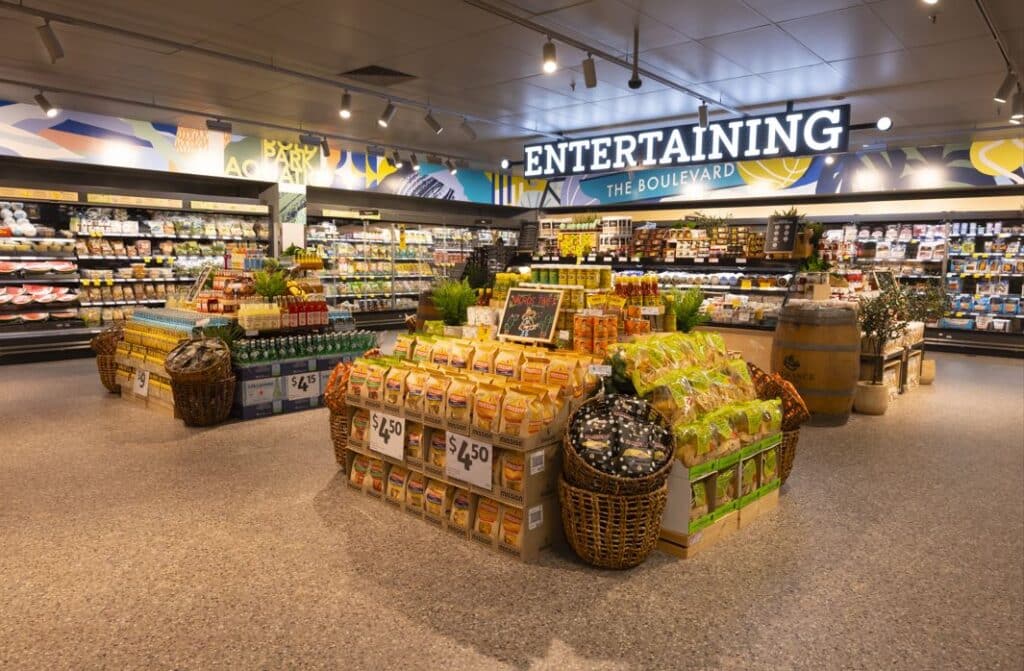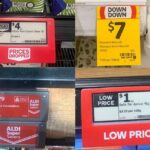
Both U.S. presidential candidates are promising to help bring down grocery prices if they’re elected. But halfway around the world, one government is already taking action against two dominant grocery retailers for advertising what it alleges are fake sales that are actually costing shoppers more.
And if our government leaders are as serious about cracking down on unfair grocery prices, American grocery chains might want to pay attention to what’s happening in Australia.
The Australian Competition and Consumer Commission – that country’s equivalent to our Federal Trade Commission’s Bureau of Consumer Protection – announced Monday that it has filed two separate lawsuits against the grocery chains Woolworths and Coles. The ACCC’s complaints accuse the retailers of making “misleading claims about illusory discounts” by charging more for hundreds of products and calling it a “sale.”
The consumer watchdog agency says the country’s two biggest grocery chains held prices steady for up to two years on more than 200 products, suddenly hiked those prices, then advertised them as being on sale for higher prices than they had originally charged.
Woolworths, for example, charged $3.50 for a family pack of Oreos for nearly two years, according to the ACCC complaint. Then the price rose to $5 for just three weeks, after which it was put on a long-term “sale” for $4.50. Price tags on store shelves highlighted the price reduction from the “regular” price of $5, even though the new supposed sale price was 29% higher than its previous regular price.
A similar example involved a pack of throat lozenges that Coles sold for $5.50. After nearly two years, the price increased to $7 for a month, after which it was advertised as being on a long-term sale for $6, with sale tags that said the previous price “was $7.”
“In many cases both Woolworths and Coles had already planned to later place the products on… promotion before the price spike, and implemented the temporary price spike for the purpose of establishing a higher ‘was’ price,” ACCC Chair Gina Cass-Gottlieb said in a statement.
Over a period of 20 months, the agency says this happened at Woolworths for 266 different products, while it happened at Coles for 245 products over 15 months.
The complaints come months after the Australian consumer group CHOICE surveyed shoppers about the often-confusing sale tags used in the country’s grocery stores. Many shoppers didn’t know whether tags that said “super savers,” “prices dropped” or “down down” signified a sale. “The range of language used to describe what appears to be a sale can make it tough to work out if a discount is actually on offer,” the group said.
In the U.S., current and would-be government leaders’ focus has been on grocery retailers raising prices and keeping them high, not raising them and lowering them again. But that doesn’t mean it doesn’t happen. It’s just largely been left to consumers to point it out. And many have, in several recent lawsuits accusing grocery chains of raising regular prices ahead of a sale, in order to provide the illusion of a better sale price.
In Australia, however, these grocery chains are going to have to defend themselves not against individual consumers, but against the federal government. If the allegations against them are proven, the maximum penalty is $50 million, or three times the profits taken in from the scheme.
“Many consumers rely on discounts to help their grocery budgets stretch further, particularly during this time of cost of living pressures,” Cass-Gottlieb said. “We allege these misleading claims about illusory discounts diminished the ability of consumers to make informed choices about what products to buy, and where.”
Everyone likes getting a good deal at the grocery store. But this case could serve as a warning, to retailers over there and over here, that the deals they’re offering had better be actual deals. Otherwise, they could be the ones who end up paying the price.
Image source: Coles










